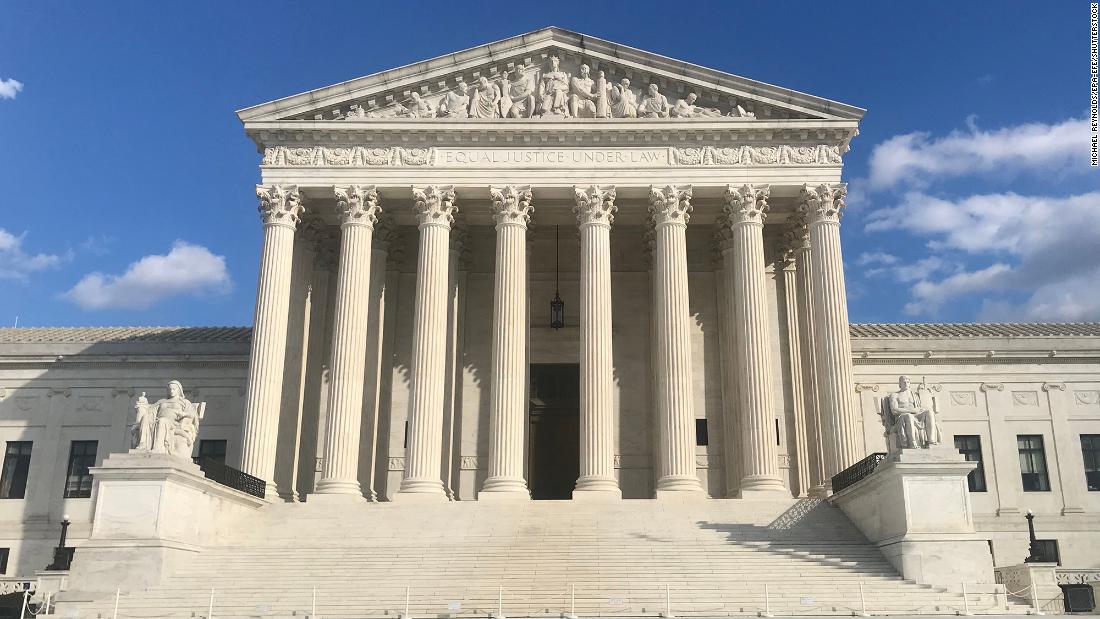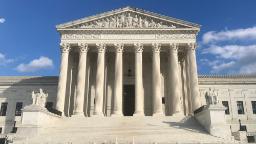

A five-member majority from the court said in Monday’s ruling that Congress would need to pass an enforcement mechanism before states could remove federal candidates from the ballot based on the 14th Amendment’s “insurrectionist ban.” Four members of the court – the three liberals, plus Justice Amy Coney Barrett – disagreed.
The all-conservative majority said this about their colleagues: “they object only to our taking into account the distinctive way Section 3 works and the fact that Section 5 vests in Congress the power to enforce it.”
The 14th Amendment’s key provision, Section 3, says in part:
“No person shall … hold any office … under the United States … who, having previously taken an oath … to support the Constitution of the United States, shall have engaged in insurrection or rebellion against the same, or given aid or comfort to the enemies thereof.”
That five-member majority said the US Constitution gave Congress the power to decide how those determinations should be made. “The relevant provision is Section 5, which enables Congress, subject of course to judicial review, to pass ‘appropriate legislation’ to ‘enforce’ the Fourteenth Amendment.”
Some more context: This finding from the majority revolves around whether the insurrectionist ban is “self-executing,” which would mean that its ratification in 1868 is enough for election officials or courts to enforce it against Trump or any other candidate. Historically, that is what happened to thousands of Confederates during Reconstruction, according to testimony at the Colorado disqualification trial from a leading constitutional scholar.
Trump argued that the Colorado courts got it wrong when they concluded that Congress doesn’t need to pass a resolution disqualifying him from office for the ban to be enforced against him. One of the dissenting Colorado justices embraced Trump’s theory that the provision isn’t self-executing, citing a ruling from the 1869 “Griffin’s Case,” which Trump heavily leaned on in his Supreme Court appeal.
